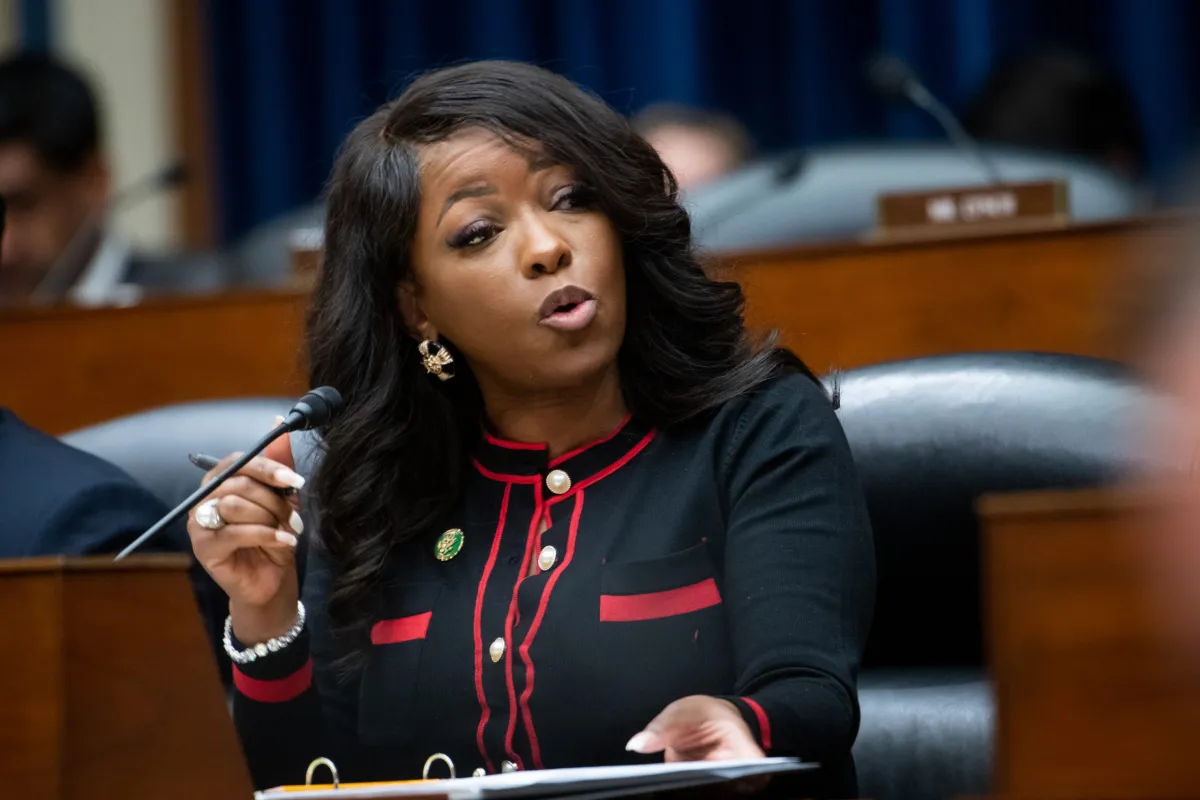From Past Allegations to Present Concerns
Questions about election integrity have long been part of the American political conversation. They are not new to either party. In 2004, Democrats raised alarms about voting machines during the presidential election, particularly after exit polls suggested one outcome in Ohio, but the official results differed. At the center of that discussion was a company called Diebold, whose executives were publicly aligned with Republican politics. Critics argued that the machines could have been manipulated, though no direct evidence ever substantiated these claims.
Fast forward to the last decade, and the discussion has shifted to Dominion Voting Systems, which purchased Diebold in 2010. Since then, the company has been a focal point of debates about election security, particularly after the 2020 election. Critics and advocates alike have scrutinized the reliability and security of electronic voting systems, though court rulings and audits have largely upheld their integrity.
Now, new attention is on Texas Representative Jasmine Crockett, who recently made public remarks questioning the use of Dominion machines — albeit in a context that reflects longstanding political debates rather than verified evidence of wrongdoing.
Crockett’s Remarks on Election Security
Crockett appeared on the “Democracy Docket” podcast, hosted by prominent Democratic attorney Marc Elias. The episode, published Monday, covered recent election results in California, New Jersey, and Virginia. During the discussion, Crockett suggested that election equipment changes, including machine ownership, could influence the outcome of future elections.
She said, in part, that former President Donald Trump “could potentially play with the machines” and that allies connected to Dominion might affect electoral outcomes. She framed her comments around the need for states to scrutinize equipment providers carefully.
While some interpreted her remarks as alarmist, Crockett’s supporters argued she was expressing concern about transparency and accountability — long-standing elements of electoral oversight in the U.S.
Dominion’s Ownership and Context
Dominion was recently acquired by a group led by Scott Leiendecker, described in media reports as a Republican election official. Leiendecker also founded KNOWiNK, a company that manufactures election software and poll books widely used across the U.S., including in 2020. This background complicates discussions about potential bias, as equipment ownership and system management are closely tied to ongoing debates about election oversight, rather than clear evidence of misconduct.
Historically, election technology companies have been scrutinized for their affiliations. Diebold, for example, faced criticism in 2004 for perceived partisan ties, and Dominion has faced intense scrutiny since 2020. However, audits and court decisions have repeatedly confirmed the integrity of electronic voting systems, even as concerns continue to circulate in political commentary.
Democrats, Republicans, and the Politics of Voting Technology
The conversation about voting machines is not partisan by nature; both parties have voiced concerns at different times. In recent years, questions of electoral security have become more polarized. Advocates for greater oversight argue that robust verification systems and clear reporting are essential to protect voter confidence.
Critics of Crockett’s comments have labeled them as echoing older conspiracy theories, reminiscent of those surrounding the 2004 Ohio election and the 2020 post-election claims. Supporters maintain she is raising legitimate issues about election transparency and the public’s ability to understand how results are tabulated.
Marc Elias, the podcast host, has been a vocal Democratic lawyer in multiple high-profile cases. During the episode, he allowed Crockett to explain her position without challenging her framing of Dominion’s role or potential election influence. While some observers found this surprising, others note that discussion of electoral integrity can take many forms without necessarily constituting evidence of fraud.
Historical Context of Election Concerns
The 2004 controversy over Diebold machines illustrates how technology and political perception intersect. Exit polls and preliminary reporting led some to question whether the machines were reliable. At the time, commentators highlighted the partisan affiliation of company executives, fueling debate.
Similarly, Dominion has been at the center of scrutiny in the wake of 2020, though litigation and audits have not substantiated claims that machines altered results. The recurring theme is that technology providers, their ownership, and system management often become focal points of political disagreement.
Experts emphasize that public trust in electoral systems depends not only on evidence of security but also on transparency in procedures. Questions about ownership, software integrity, and reporting processes are central to ongoing discussions, regardless of party affiliation.
Crockett’s Position and Public Reaction
Crockett’s statements reflect a broader tension in U.S. elections: how to balance skepticism with evidence-based oversight. While her comments have drawn media attention, they also raise questions about how elected officials communicate concerns about election technology.
Observers have noted that discussions like these can influence public perception, particularly when amplified by social media or partisan outlets. Crockett framed her concerns in terms of educating state officials and ensuring transparency in elections. Critics argue that her language evokes past conspiracy theories, while supporters contend she is highlighting legitimate procedural questions.
The Broader Debate on Voting Technology
Election security remains a high-profile issue in U.S. politics. Concerns include:
-
Accuracy and reliability of electronic voting machines
-
Ownership and management of voting technology providers
-
Transparency and auditing procedures
-
Public confidence in election results
Both parties have raised questions about these issues at different times. Republicans, for example, have historically expressed concerns about potential vote manipulation or procedural errors, while Democrats have raised similar questions in contexts involving equipment providers with partisan affiliations.
In this environment, statements like Crockett’s illustrate the challenges of discussing election security responsibly, especially when the topic intersects with high-profile figures, partisan debate, and corporate ownership.
Legal and Regulatory Context
Voting systems in the U.S. are subject to rigorous testing and certification at both federal and state levels. Companies such as Dominion and KNOWiNK are required to comply with these standards. Any potential concerns about security or integrity are typically addressed through audits, legal challenges, or regulatory oversight rather than public speculation.
Observers emphasize that while debate about election procedures is appropriate, claims of manipulation or fraud must be substantiated. This distinction is critical to maintaining public trust and avoiding misinformation.
Conclusion: A Continuing Conversation
Crockett’s comments, while controversial to some, underscore a broader conversation about election oversight, technology, and public confidence. Questions about ownership, system management, and transparency are not unique to one party or election cycle.
As technology continues to play a central role in elections, officials, policymakers, and the public face ongoing challenges in balancing security, transparency, and trust. The discussion sparked by Crockett illustrates the enduring tension between raising concerns and ensuring those concerns are grounded in verifiable facts.
Whether viewed as legitimate oversight or as a repeat of past conspiracy narratives, the episode highlights the importance of clear communication, evidence-based discussion, and procedural rigor in U.S. elections.

Emily Johnson is a critically acclaimed essayist and novelist known for her thought-provoking works centered on feminism, women’s rights, and modern relationships. Born and raised in Portland, Oregon, Emily grew up with a deep love of books, often spending her afternoons at her local library. She went on to study literature and gender studies at UCLA, where she became deeply involved in activism and began publishing essays in campus journals. Her debut essay collection, Voices Unbound, struck a chord with readers nationwide for its fearless exploration of gender dynamics, identity, and the challenges faced by women in contemporary society. Emily later transitioned into fiction, writing novels that balance compelling storytelling with social commentary. Her protagonists are often strong, multidimensional women navigating love, ambition, and the struggles of everyday life, making her a favorite among readers who crave authentic, relatable narratives. Critics praise her ability to merge personal intimacy with universal themes. Off the page, Emily is an advocate for women in publishing, leading workshops that encourage young female writers to embrace their voices. She lives in Seattle with her partner and two rescue cats, where she continues to write, teach, and inspire a new generation of storytellers.









